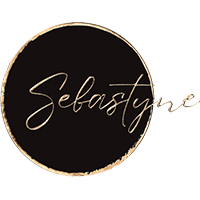Narcissistic Personality Disorder, misdiagnosis and the real problems
Disobedience, being self-satisfied and knowing the level of one’s own, unusually high talent are not symptoms of any kind of a Narcissistic Personality Disorder. Liking the way oneself looks, taking tons of selfies, and maintaining a personal blog or a social media account are also not symptoms of NPD in itself. Not liking people, refusing to maintain certain friendships and not following societal norm or regulations are equally invalid in assessing NPD.
What are symptoms of NPD:
- Excessive need to control other’s behavior, life choices, and choices of friends and partners. (The need to control one’s own family is not exempted unless there is a specific, REAL danger that the family needs to be protected from.)
- A need to “airbrush” the reality, and in this, social media accounts and websites apply: the need to portray a completely fictitious self-image to the public and the need to create “an alternative” idyllic self-image is a symptom of NPD UNLESS there is a clear professional goal behind this. Creating a public image for the purpose of advancing a career cannot be considered a symptom of NPD, even if it may not be what the public would like or expect.
- Unrealistic, non-verified self-image. As in: Considers oneself far more beautiful/talented/appreciated than what they are in reality. This is not a real problem, however, but would fall under NPD – can be cured.
- The insistence of “what it looks like on the outside/to the public is the way that it is”. A true belief that it is the externals that matter, behavior over feeling, an image before reality etc. This does not mean a deliberate need to portray an image, but the belief that ALL THAT MATTERS is external. The true trust that as long as nobody finds out the truth, the truth is what they think it is. “What other’s think of me is the truth.”
- The idea of “I am as my friends are” falls under NPD, but is curable. This is a full belief that no matter what oneself is like, they become exactly like their friends; A strong, true belief in “like attracts like”: Having been accepted into a group: “If you accept me into your group, that means I am just like you.” This also applies to family members: “I am the member of the X family, which means I am exactly like them.” True or not. This has a lot to do with intelligence and the ability to accurately assess one’s own traits compared to others.
- What is also a sign of a slight NPD is making fake friends from people who they see as being inferior because one thinks “I am doing them a favor by hanging out with them even though they are not as X as I am.” Curable. Usually done out of a true wish to do the right thing, reframing it puts an end to this practice.
- Complete inability to accept rejection as “real”, always thinking “I am welcome” and if it is not true, blaming the others for “having issues”.
- Inability to compliment very talented people on their obvious talent “to not boost their ego” or “they’ve already heard it enough, will give them a big head!”
- The need to explain other people’s superior talent or skill away as a mental disorder or “pretense” or “a trick”; cannot handle the idea that people more talented than oneself exist. (Also applies to mediocre people and their dismissal of talent.)
- Need to dismiss a more intelligent person’s argumentation as “manipulative” or “trickery”.
- Need to award the should be second or third runner-up in a competition, to “punish” the clear winner(s) for being that good.
- Irritation when someone is not functioning properly; views other people akin to machines that do not work properly. See Helena’s Disease
- A need to control other’s emtional space. The attempt to push towards “less emotion” or “more emotion” based on one’s own preferences.
- Narcissistic reaction: Dismissing an uneducated or a novice ACCURATE point of view “because I have done this longer”. (Very common, not a sign of NPD, but still, a narcissistic reaction.)
The fear of having NPD (Being full of oneself)
People may also over-correct themselves in the fear of having a Narcissistic Personality Disorder, or, more to the point, being afraid of “being a bitch/dick”. This would include:
- Failure to approach interesting people in the fear of “complimenting oneself enough to think people like that would want my company”.
- Accepting unfair treatment in the fear of “being unable to accept realities”.
- In unusually talented and good-looking people, the constant fear of being unrealistic in their self-assessment when everywhere you go, you authentically feel you are “the best” or among “the best”.
Origins; hang up from primitive life forms
The NPD is not TRULY a mental disorder, it is more a hangup from primitive life forms. In animal societies, each and every individual function as expected. All animals are very much alike, and show little personality differences or rarely make lifestyle choices that differ from the rest of the species. In this, humans are different. We are each different in our personalities, aspirations, likes, and dislikes, and the individuals who haven’t fully adapted to human life are trying to restore the simplicity of living as an animal.
The cure is to reassure and teach these individuals to think like humans; accepting difference and celebrating uniqueness and independence.
Subscribe to get a Daily Message
*) Term changed after this post was originally written. Fractions of old terms may exist elsewhere in the post. Read about term updates.
**) Narcissists are Young Souls left alone to survive and they're doing their best. Their emotional age ranges from 3 to 17 -year old. The younger, the more severe the narcissism.
© 2001-2024 Copyright Sebastyne - CRC-32 ecd1f512. - All rights reserved.

